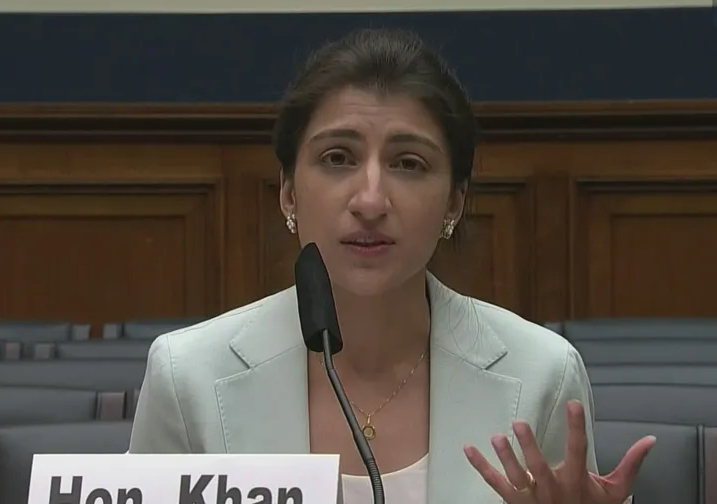Klon Kitchen raises concerns about recent remarks from the head of the Federal Trade Commission.
In her recent testimony before the House Energy and Commerce Committee on April 18, Federal Trade Commission (FTC) Chair Lina Khan demonstrated a concerning lack of understanding of the U.S. tech sector’s importance to American economic and national security interests. She also exposed the FTC’s loose grasp on the threats posed by the People’s Republic of China’s (PRC) tech sector, which remains under the control of the Chinese Communist Party. Worse still, the FTC’s recent actions threaten to undermine U.S. interests and empower the PRC.
The FTC announced on March 30 that it would send agency officials abroad to implement and enforce the European Union’s Digital Markets Act (DMA). This law went into effect on November 1, 2022, with the goal of increasing competition in the technology sector. To achieve this goal, DMA targets several online platforms (overwhelmingly American ones) by designating them as technology sector “gatekeepers.” Gatekeepers are subject to rules that their competitors are exempted from, such as allowing third party access to hardware, software, and operating systems. DMA would also require “gatekeepers” to share intellectual property and trade secrets with their competitors. Leading Chinese tech companies are not expected to be in the scope of the DMA.
Khan’s comments reveal a startling willingness to support foreign policies that could harm American interests. She stated during her testimony that it is “good government” for the United States to “be cooperating” with foreign jurisdictions “to get to consistent [policy] outcomes.” Yet it is hard to reconcile DMA cooperation as a “consistent outcome” for the U.S. government, which expressed serious concerns about the law to the EU in 2021.
This is particularly concerning as it is Chinese companies, not the European companies the DMA seeks to empower, that stand to benefit from U.S. tech providers facing discrimination in foreign jurisdictions.

